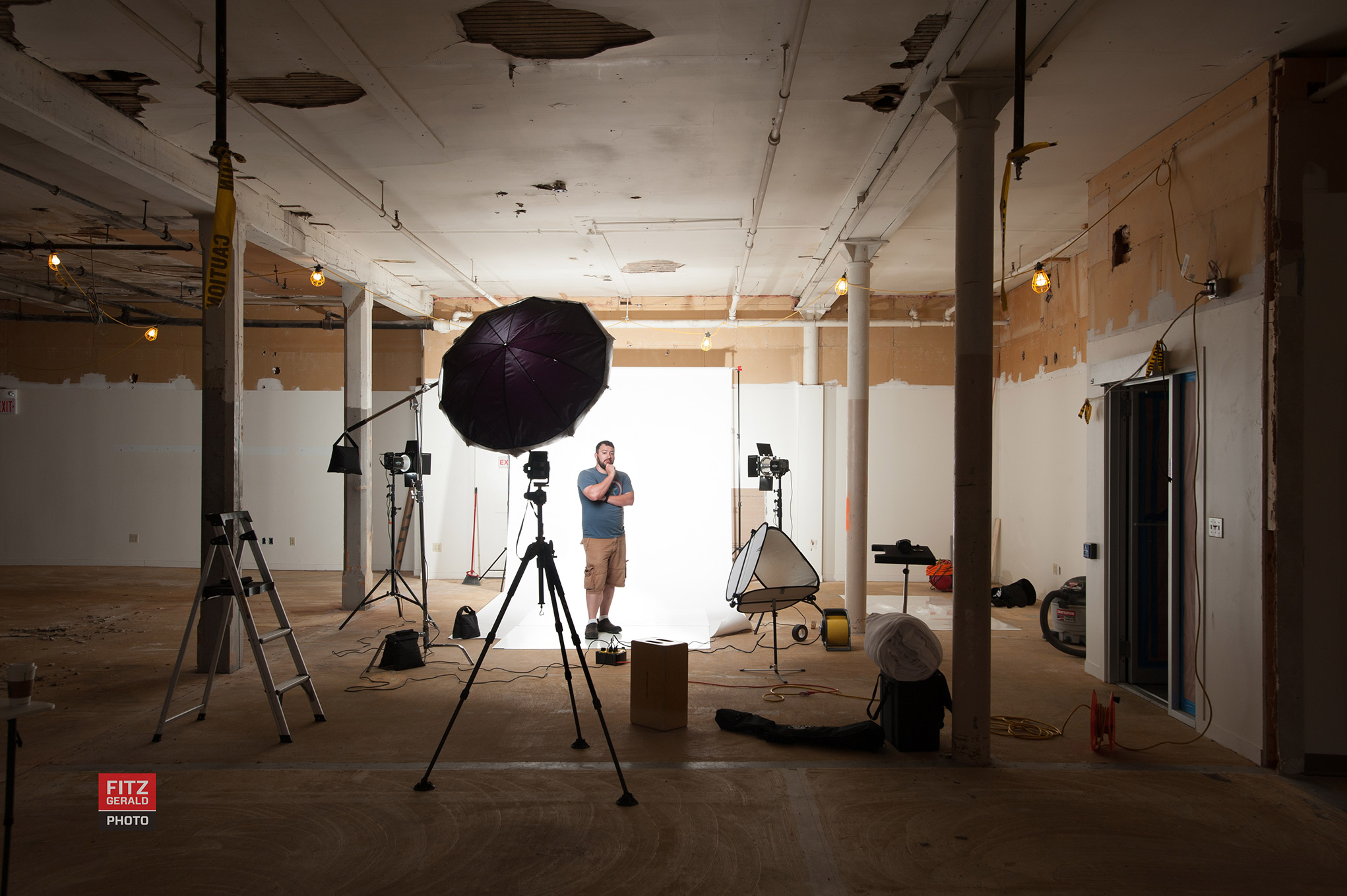
Last week I got a call from a potential client and discovered, upon hearing about their project, that I couldn’t help. Not directly, anyway: I suggested a couple other local photographers whose body of work matched their needs who I thought were a better fit, and wished them good luck.
It dawned on me that the client was calling me not because I was the perfect fit, but because I was a Professional Photographer who could handle any type of job involving a camera.
I walked away from that conversation realizing that those seeking professional photography are often uncertain which questions to ask photographers. Any professional shooter worth their salt should be able to help clients ask the right questions, of course, but here are ten things to ask or consider next time you are in the market for a professional photographer that will increase the odds your experience will be good and your ultimate images, great.
Does their work fall into distinct and definable categories, or is it all over the place?
The days of the generalist photographer are gone. If a photographer shoots everything from landscape to product to family portraits to corporate work to weddings (all of them a very different clientele), then there is no obvious focus to their work. Look for a portfolio that shows depth in the type of imagery that you want or most need. Chances are, if a situation or challenge comes up during the shoot, these expert specialists will have encountered it before and can quickly deal with it. (One side note: any experienced photographer, particularly those with editorial experience, really are trained as generalists and can do a variety of different types of work well….but they will typically separate this work into different websites. For example, I have a headshot website in addition to my main website; others may have different portals for wedding work and corporate/commercial work.)
Does the photographer’s work speak to you?
Importantly, can you see it representing you or your brand? Beyond the ‘logical’ is the emotional. Photography is primarily a non-literal, emotional medium that communicates mood and feeling. At a gut level, a photographer’s work will pull you in and resonate with you (ideally). When you think about your brand, what adjectives do you use to describe the mood and feel of your brand? If it’s contemporary, bold, and masculine, you’ll be looking for a different style of visuals than an organization wanting to emphasize teamwork, warmth, and fun.
Does their portfolio specifically represent your particular needs?
If you are a retailer and need beauty shots of your products, make sure the photographer has similar product work in their portfolio. This seems obvious, but I get plenty of calls for people asking for elaborate product photography…yet I have none of that kind of work on my sites. If I were to agree to take on the work, my clients have no real proof or evidence that I can do the work they are paying me for. They are gambling that I’m being above-board with them. If you are talking with a photographer who doesn’t have any (or maybe just a few) of the types of photography you are looking for on their site, ask them to provide you with additional samples of that type of work. Typically, I’ll provide a PDF mini-portfolio filled with the type of specific work a prospect is inquiring about so they can get a better sense for how I approach that type of job.
How active is the photographer on their platform(s)?
Are they constantly producing and showing new work? The frequency of work on a photographer’s blog or social media feed isn’t so important. What is important is that they are consistently, regularly showing new work. A busy photographer, passionate about creating visuals, is exactly the type of photographer you want to work with.
How responsive are they to your initial inquiry?
Most photographers operate as solo businesses and don’t have an office person answering the phones….so if you contact them and they don’t pick up the phone, it’s likely they are out on a shoot. That said, photographers are among the most tech-savvy, connected people out there. They will get your message and should respond to you quickly–certainly within 24 hours. In that and subsequent interactions, you want a photographer who is responsive, proactive and doesn’t have to be prodded.
Are they professional?
I’m not asking about whether they take amazing photographs. What I’m getting at is this: a professional photographer will treat what they do as a business. They will have professional-looking estimates, invoices and materials. They will be able to answer your questions. Most of all, they will put your needs—the client or the potential client—first. They do this by making you aware of potential issues with a planned shoot before it occurs, and will always have a backup plan. What happens if you lose your images and need them resent to you, years down the road? Do they have the relevant business insurance to protect you, your clients and the photographer? What happens if a light explodes, or a camera breaks? Most professionals have had to deal with these situations and much worse, and will be able to help you understand the “what-ifs”. All you have to do is ask.
How does the photographer present themselves in public, whether in person or online?
Call up the photographer’s blog or website. Go onto their Linkedin profile, Instagram, Facebook Page and/or Twitter. Are they professional on any of the channels that represent their brand? Do they complain about clients (crazy, but I see photographers do it all the time)? Do they complain about the lack of business, or overshare about personal difficulties (again, I see this all the time). I’m not saying the photographer can’t have personality online–they definitely should. What I’m suggesting is to look for red flags that show you that the person is not serious about what they do, is not focused or is having issues that you don’t want your brand associated with.
What kinds of questions do they ask?
Professional photographers don’t assume that you will show up with all of the answers they need to do their jobs without effort. They should ask you questions that help to flesh out what you need and when you need it, and to help them understand your brand and your short-, medium-, and long-term goals. Among the questions they may ask: what is your budget? How do you plan to use the images, and for how long? You should feel comfortable and listened to as they guide you towards a more complete understanding of the project at hand.
Are they recommended by others?
If you found the photographer from a trusted friend or colleague who has actually used them or worked with them on a project, that’s a great recommendation. You might look at their LinkedIn profile to see what recommendations they have, or check their site for testimonials. It’s certainly appropriate to ask the photographer for references–past clients that you can contact. In my years of doing this professionally, I can’t remember one occasion where I’ve been asked for a reference, but given the investment people are making in my services, I would gladly provide them if asked. It would also make me feel that the client is a serious, committed partner in the process, invested in and committed to the best results….just like I am.
How do they communicate?
I’ve already mentioned responsiveness….but the styles of communication is important too. Most photographers I know are great communicators, but that said, some are more comfortable with males, others with females. Some work well with blue-collar workers and others in professional environments. Everyone’s different. Suss out how they explain things to you. Are they “loop closers”, pinning down times, details and proactively offering suggestions that can be answered simply in one email, or do they communicate in blurbs and blips, using open-ended questions or only direct answers that prolong your communications, require more emails or calls, or necessitate endless clarifications? If communication is an issue at the outset of your collaboration, it will remain an issue….and will probably get worse.
Approach a photographer as you would with any relationship–with some preparation and asking the right questions—and I guarantee you’ll be happier with the process and the results.
